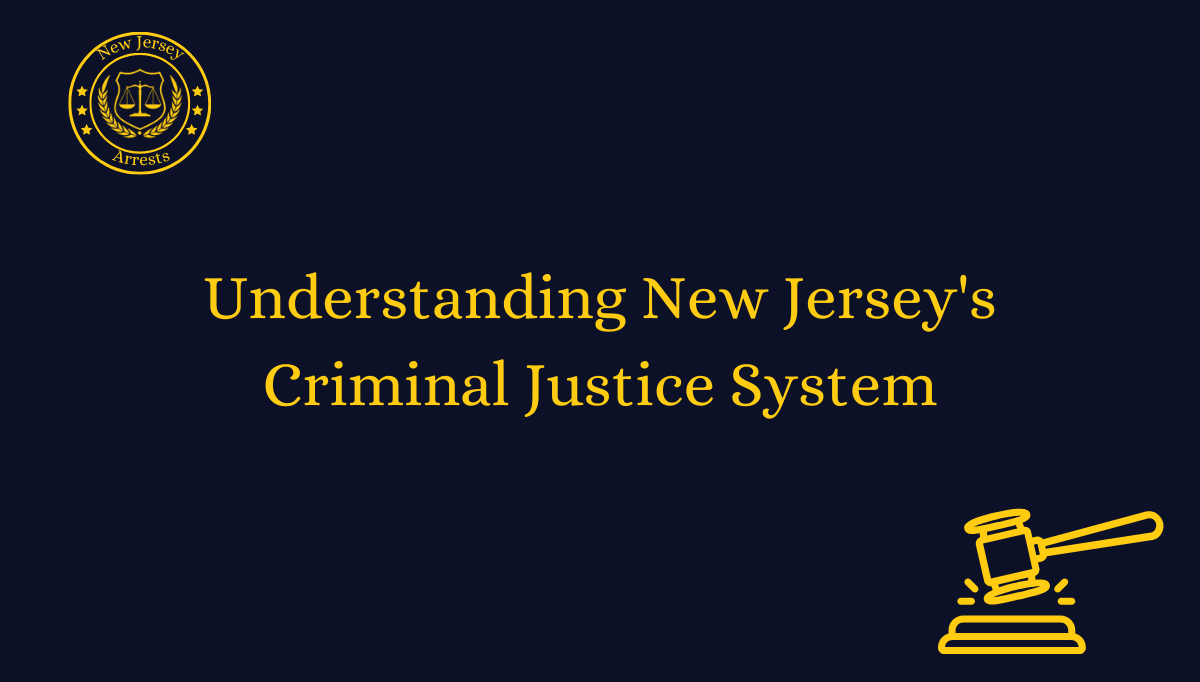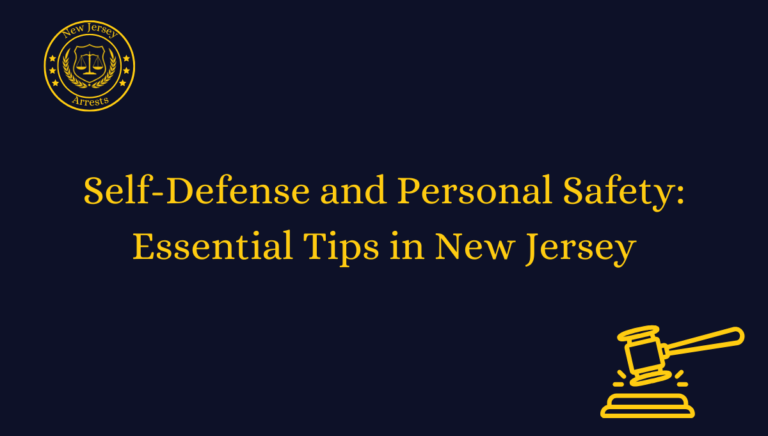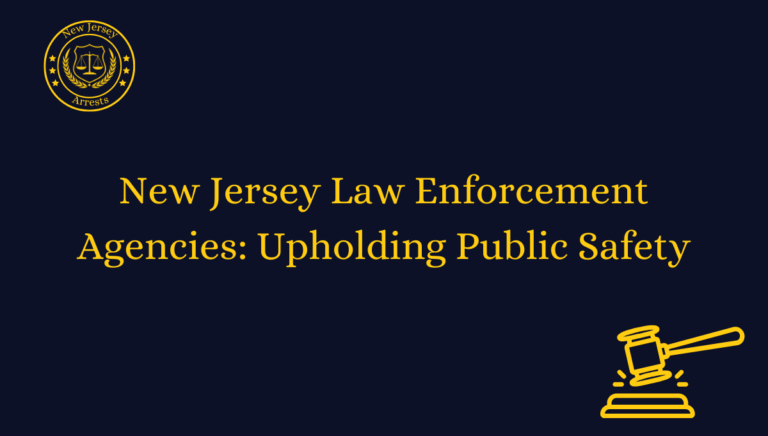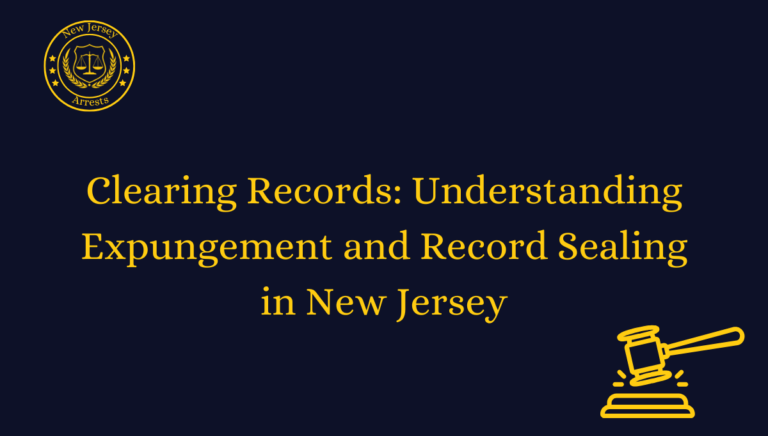Understanding New Jersey’s Criminal Justice System
New Jersey’s criminal justice system is a complex and multifaceted entity that plays a critical role in ensuring public safety and upholding the principles of justice. From the moment a crime is committed to the final verdict, every step in the process is carefully orchestrated to ensure fairness and accountability. Understanding how this system operates is essential for anyone who finds themselves involved in the criminal justice system, whether as a defendant, victim, or concerned citizen.
At its core, New Jersey’s criminal justice system is designed to balance the rights of the accused with the need for public safety. The system is built on a foundation of laws, regulations, and procedures that guide the actions of law enforcement, attorneys, judges, and other key stakeholders. From the initial investigation and arrest to the trial and potential sentencing, each stage of the process is governed by a set of rules and principles that aim to protect the rights of all parties involved.
The Investigation Process
Uncovering the truth behind a crime is the first step in the criminal justice system. Law enforcement agencies diligently gather evidence, interview witnesses, and analyze the scene to build a strong case. This crucial stage sets the foundation for the entire legal process, ensuring that accurate information is presented in court.
The Arrest and Booking
Once a suspect is identified, law enforcement officers have the authority to make an arrest. The suspect is then taken into custody and brought to a police station for booking. During this process, personal information is collected, fingerprints are taken, and a mugshot is captured. It is important to note that an arrest does not imply guilt, but rather signifies that there is enough evidence to proceed with the legal proceedings.
The Role of Prosecutors
Prosecutors play a pivotal role in New Jersey’s criminal justice system. These legal professionals are responsible for representing the state and presenting evidence against the accused. They review the case, consult with law enforcement, and make decisions regarding charges and potential plea bargains. Their primary objective is to seek justice and protect the interests of the community.
The Trial Process
The trial is where all the evidence is presented, arguments are made, and the truth is sought. It is conducted in a courtroom and overseen by a judge. The prosecution and defense have the opportunity to call witnesses, cross-examine opposing witnesses, and present their case. The judge ensures that the trial is conducted fairly, and a jury, if applicable, determines the verdict based on the evidence presented.
Sentencing and Appeals
Following a guilty verdict, the judge determines the appropriate sentence within the boundaries set by the law. Factors such as the severity of the crime, the defendant’s criminal history, and any mitigating circumstances are taken into consideration. In some cases, the defendant may appeal the verdict or the sentence, seeking a review of the trial process or claiming legal errors.
Rehabilitation and Community Programs
While punishment is an essential component of the criminal justice system, New Jersey also prioritizes rehabilitation and reintegration. Various programs and initiatives aim to address the root causes of criminal behavior and provide support to individuals seeking to rebuild their lives. These efforts not only contribute to public safety but also offer offenders a chance to become productive members of society.
Ongoing Evaluation and Reform
New Jersey’s criminal justice system is an ever-evolving entity. Continuous evaluation, research, and public input are essential in identifying areas for improvement and implementing necessary reforms. The goal is to ensure that the system remains fair, just, and effective in addressing the changing dynamics of crime and society.
FAQs
What is the role of the criminal justice system in New Jersey?
The criminal justice system in New Jersey is responsible for maintaining law and order, ensuring public safety, and punishing individuals who violate the law. It includes law enforcement agencies, courts, and correctional facilities.
How does the criminal justice process work in New Jersey?
The criminal justice process in New Jersey typically begins with an arrest. The arrested individual is then brought before a judge for an initial hearing. If there is enough evidence, the case proceeds to trial. If found guilty, the offender is sentenced accordingly.
What are the different types of crimes in New Jersey?
New Jersey classifies crimes into different categories, including indictable offenses (felonies) and disorderly persons offenses (misdemeanors). Indictable offenses are further divided into four degrees, depending on their severity.
What are the possible penalties for criminal offenses in New Jersey?
The penalties for criminal offenses in New Jersey vary depending on the severity of the crime and the defendant’s criminal history. They can range from fines and probation to imprisonment, community service, or rehabilitation programs.
Can a criminal record be expunged in New Jersey?
Yes, it is possible to have a criminal record expunged in New Jersey under certain circumstances. Expungement allows individuals to have their criminal records sealed or destroyed, providing them with a fresh start and greater opportunities for employment and housing.
What are the rights of individuals accused of a crime in New Jersey?
Individuals accused of a crime in New Jersey have various rights, including the right to remain silent, the right to legal representation, the right to a fair trial, and the right to confront and cross-examine witnesses. These rights are protected by the U.S. Constitution and New Jersey laws.







